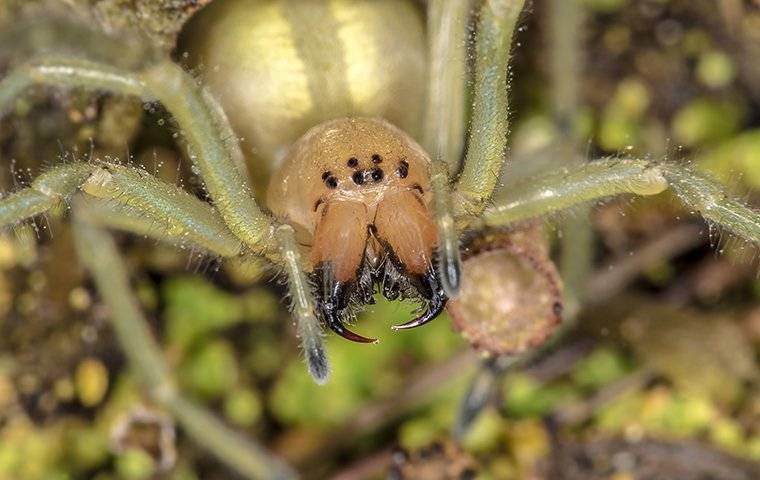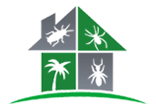Now Is A Great Time For Spider Prevention In Greenville, SC
September 15, 2021
Rain, leaky pipes, leftover crumbs, and cluttered spaces all promote pest activity. These elements give pests the three things they're looking for to survive: food, shelter, and water. As pests become active around your home, they will attract the attention of secondary pests, like spiders.

What Makes Spiders A Pest
Why are spiders a secondary pest? Because they aren't drawn to you, your home, or the vegetation around your home, spiders eat insects and vertebrates that bite and sting you, chew on your home and belongings, and draw nectar and sap from the vegetation in your landscaping. That makes them very beneficial to have around—as long as they stay where they belong. The problem is that they don't stay where they're supposed to be. Part of the reason they don't is that most homeowners don't know how to let spiders know that they're not welcome. Consider the following preventative tips to reduce spiders inside your Greenville home.
Prevention Tip #1: Pest Control
Food is a top priority for spiders. It is one of the biggest reasons house spiders are so common in Greenville. They go where they can find food, and many of the insects and invertebrates they eat tend to get into our homes. Here are some of the many ways you can reduce pest populations around your home.
-
Make sure all exterior trash receptacles have a lid.
-
Consider keeping exterior lights off at night where it is not a security concern.
-
Remove objects away from your exterior to remove hiding places.
-
Rake leaves and other organic material away from your home, especially from under exterior structures like decks and stairs.
Prevention Tip #2: Spider Web Removal
When spiders create webs around your home, they're not just ugly to look at; those webs can have hundreds of spider eggs on them. If they do, it won't be long till you have hundreds of spiderlings crawling around on your exterior. It is important to remove webs as soon as you see them. Use a spider web removal tool for this. When you put the webs into a bag for disposal, you may spray the webs and the removal tool with rubbing alcohol. Diatomaceous earth on the removal brush may take care of those eggs without using any spray.
Prevention Tip #3: Reduce Moisture
There are many ways that moisture promotes pest activity. The best pest resistance you can give your home is to reduce moisture. Consider the following ways:
-
Clean your gutters.
-
Fix broken gutters and downspouts.
-
Water plants in the morning.
-
Fix leaking exterior spigots.
Prevention Tip #4: Seal Entry Points
There are many ways spiders can get into a home. Some are obvious, and some are not so obvious. Inspect your exterior and make sure you don't have these vulnerabilities.
-
Gaps in weatherstripping around exterior doors
-
Missing or damaged door sweeps
-
Cracks in foundation walls
-
Gaps around pipes or wire conduit
-
Holes created by wood-damaging pests
Along with these entry points, it is important to be aware that boxes stored in exterior locations, trees, or potted plants can allow spiders to be carried into your home from the outside.
Prevention Tip #5: Consult The Professionals At Greenville Pest Control
Life can get busy, and spiders will advance while you're distracted. The best solution for spider control is to have a licensed pest management professional create a barrier of protection around your home that reduces and repels insects and invertebrates that spiders eat, as well as the spiders themselves. At Greenville Pest Control, we also use a long web removal tool to eliminate spider webs in tough locations.
If you've had enough of spiders and other pests getting into your home, contact Greenville Pest Control today. We service residents and business owners in Greenville with effective, comprehensive, and friendly pest control. We're standing by to help.
Tags: spider control spider prevention spider infestation
Previous Next
What Makes Spiders A Pest
Why are spiders a secondary pest? Because they aren't drawn to you, your home, or the vegetation around your home, spiders eat insects and vertebrates that bite and sting you, chew on your home and belongings, and draw nectar and sap from the vegetation in your landscaping. That makes them very beneficial to have around—as long as they stay where they belong. The problem is that they don't stay where they're supposed to be. Part of the reason they don't is that most homeowners don't know how to let spiders know that they're not welcome. Consider the following preventative tips to reduce spiders inside your Greenville home.
Prevention Tip #1: Pest Control
Food is a top priority for spiders. It is one of the biggest reasons house spiders are so common in Greenville. They go where they can find food, and many of the insects and invertebrates they eat tend to get into our homes. Here are some of the many ways you can reduce pest populations around your home.
-
Make sure all exterior trash receptacles have a lid.
-
Consider keeping exterior lights off at night where it is not a security concern.
-
Remove objects away from your exterior to remove hiding places.
-
Rake leaves and other organic material away from your home, especially from under exterior structures like decks and stairs.
Prevention Tip #2: Spider Web Removal
When spiders create webs around your home, they're not just ugly to look at; those webs can have hundreds of spider eggs on them. If they do, it won't be long till you have hundreds of spiderlings crawling around on your exterior. It is important to remove webs as soon as you see them. Use a spider web removal tool for this. When you put the webs into a bag for disposal, you may spray the webs and the removal tool with rubbing alcohol. Diatomaceous earth on the removal brush may take care of those eggs without using any spray.
Prevention Tip #3: Reduce Moisture
There are many ways that moisture promotes pest activity. The best pest resistance you can give your home is to reduce moisture. Consider the following ways:
-
Clean your gutters.
-
Fix broken gutters and downspouts.
-
Water plants in the morning.
-
Fix leaking exterior spigots.
Prevention Tip #4: Seal Entry Points
There are many ways spiders can get into a home. Some are obvious, and some are not so obvious. Inspect your exterior and make sure you don't have these vulnerabilities.
-
Gaps in weatherstripping around exterior doors
-
Missing or damaged door sweeps
-
Cracks in foundation walls
-
Gaps around pipes or wire conduit
-
Holes created by wood-damaging pests
Along with these entry points, it is important to be aware that boxes stored in exterior locations, trees, or potted plants can allow spiders to be carried into your home from the outside.
Prevention Tip #5: Consult The Professionals At Greenville Pest Control
Life can get busy, and spiders will advance while you're distracted. The best solution for spider control is to have a licensed pest management professional create a barrier of protection around your home that reduces and repels insects and invertebrates that spiders eat, as well as the spiders themselves. At Greenville Pest Control, we also use a long web removal tool to eliminate spider webs in tough locations.
If you've had enough of spiders and other pests getting into your home, contact Greenville Pest Control today. We service residents and business owners in Greenville with effective, comprehensive, and friendly pest control. We're standing by to help.


